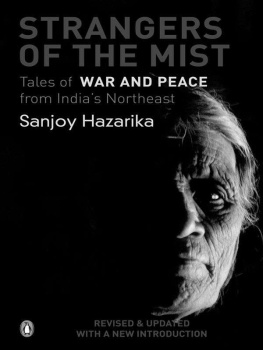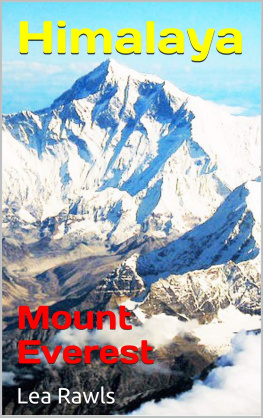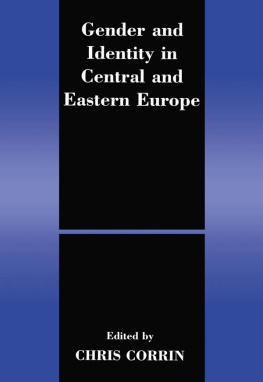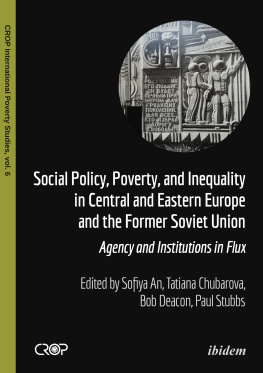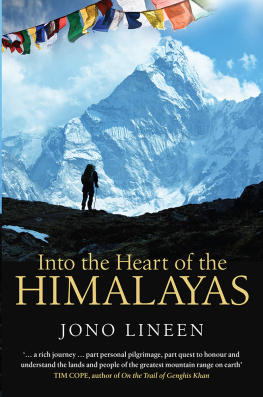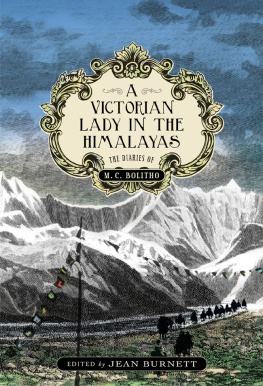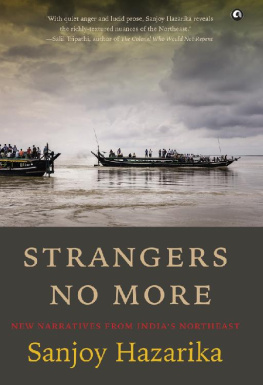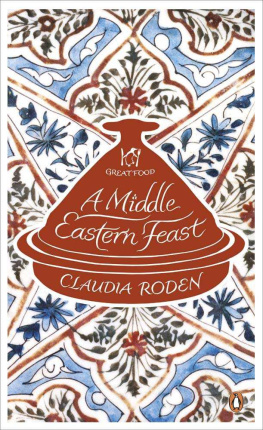
Gender, Poverty and Livelihood in the Eastern Himalayas
The Eastern Himalaya region covers a geographical area that spans five nations and has diverse landscapes, a multitude of ethnic groups and a rich variety of flora and fauna. The region is relatively poor in terms of GDP and per capita income; industrialisation and infrastructure is under-developed; climate-induced disasters are frequent; and maternal and infant mortality rates are high. Economic constraints combined with restrictive cultural norms create barriers for women in education, employment and decision-making, thus further entrenching unequal gender relations.
This book explores the ways in which gender-sensitive and inclusive policies can be developed to address the basic issues of marginalisation, livelihood, poverty and vulnerability in the Eastern Himalayas. The chapters in the volume touch upon current concerns, such as the economic and social challenges faced by women, their control over resources, questions of patriarchy, discrimination, gender rights and equity, information, empowerment and participation, and women as agents of change.
This volume will be useful to researchers and scholars in gender studies, sociology and social anthropology, development studies, economic and human geography, politics, northeast and Himalayan studies, South Asian studies, as well as policymakers and those in the development sector and non-governmental organisations.
Sanjoy Hazarika is the Director of the Commonwealth Human Rights Initiative (CHRI) and was the founder of the Centre for North East Studies and Policy Research, Jamia Millia Islamia, New Delhi, India.
Reshmi Banerjee is Academic Visitor at the Asian Studies Centre (Programme on Modern Burmese Studies), St Antonys College, University of Oxford, UK.
First published 2018
by Routledge
2 Park Square, Milton Park, Abingdon, Oxon OX14 4RN
and by Routledge
711 Third Avenue, New York, NY 10017
Routledge is an imprint of the Taylor & Francis Group, an informa business
2018 selection and editorial matter, Sanjoy Hazarika and Reshmi Banerjee; individual chapters, the contributors
The right of Sanjoy Hazarika and Reshmi Banerjee to be identified as the authors of the editorial material, and of the authors for their individual chapters, has been asserted in accordance with sections 77 and 78 of the Copyright, Designs and Patents Act 1988.
All rights reserved. No part of this book may be reprinted or reproduced or utilised in any form or by any electronic, mechanical, or other means, now known or hereafter invented, including photocopying and recording, or in any information storage or retrieval system, without permission in writing from the publishers.
The international boundaries, coastlines, denominations, and other information shown in any map in this work do not necessarily imply any judgement concerning the legal status of any territory or the endorsement or acceptance of such information. For current boundaries, readers may refer to the Survey of India maps.
Trademark notice: Product or corporate names may be trademarks or registered trademarks, and are used only for identification and explanation without intent to infringe.
British Library Cataloguing-in-Publication Data
A catalogue record for this book is available from the British Library
Library of Congress Cataloging-in-Publication Data
A catalog record has been requested for this book
ISBN: 978-1-138-69642-6 (hbk)
ISBN: 978-1-315-10794-3 (ebk)
Typeset in Sabon
by Apex CoVantage, LLC
Contents
SANJOY HAZARIKA AND RESHMI BANERJEE
GEORGE VAN DRIEM
JWALA D. THAPA
SARAH MARIE NISCHALKE AND SUMAN BISHT
SUBHADRA MITRA CHANNA
TARA DOUGLAS
MARCHANG REIMEINGAM
RESHMI BANERJEE
Reshmi Banerjee is an Academic Visitor at the Asian Studies Centre (Programme on Modern Burmese Studies), St Antonys College, University of Oxford, UK. She was previously a research associate at the Centre of Southeast Asian Studies (CSEAS), School of Oriental and African Studies (SOAS), University of London, UK and Visiting Professor at the Centre for North East Studies and Policy Research, Jamia Millia Islamia, New Delhi, India. She is co-editor of the book Climate Change in the Eastern Himalaya: Impact on Livelihoods, Growth and Poverty (2015). She has been a post-doctoral fellow at the University of Indonesia (UI) in Jakarta, a researcher in the Indonesian Institute of Sciences (LIPI), and Fellow at the Rajiv Gandhi Institute for Contemporary Studies (RGICS). She has also taught at University of Delhi and the University of Indonesia.
Suman Bisht completed her doctorate from the Department of Sociology, Delhi School of Economics, University of Delhi, India. She has expertise in health, livelihood and climate change with a strong background in gender and more than sixteen years of experience working across different sectors such as health, gender-based violence, natural resource management, migration and others. She has worked with university, research organisations, national and international NGOs, grass-roots organisations and womens groups in India and outside, including Rwanda, Sri Lanka, China, Nepal and Vietnam. She has worked in senior program management positions in international organizations, developing, managing, and implementing development programmes with a clear gender focus. She joined ICIMOD (International Centre for Integrated Mountain Development) as a senior gender specialist in January 2012 and is currently working as Program Coordinator for AdaptHimal, Nepal.
Subhadra Mitra Channa taught Anthropology at the University of Delhi, India. Her areas of interest include marginalisation and identity, gender, religion and cosmology, ecology and landscapes. She has received several prestigious international awards and fellowships. She was Charles Wallace Fellow to UK (Queens University, Belfast 2000), Visiting Professor to MSH, Paris (2002), Fulbright visiting lecturer to Auburn University, Alabama, USA (2003) and Fulbright Scholar-in-Residence to University of Southern California, USA (2008/9). She is the author/editor of nine books and has more than fifty scholarly published papers. She was President of the Indian Anthropological Association, editor of the journal Indian Anthropologist; Chair of the Commission on the Anthropology of Women (IUAES) and is presently Vice President of IUAES. Her important publications include Gender in South Asia (2013) and The Inner and Outer Selves (2013), Life as a Dalit (2013), Gender Livelihood and Environment (2015).
Tara Douglas is co-founder and Secretary of the Adivasi Arts Trust (www.adivasiartstrust.org). She has conducted several screening programmes and creative workshops with school children in UK. She has also conducted animation workshops in Nagaland, Sikkim, Manipur, Arunachal Pradesh, Madhya Pradesh and Gujarat for indigenous participants, artists and storytellers. She completed a Doctorate of Professional Practice on Tales of the tribes: animation as a tool for indigenous representation at Bournemouth University, UK. This practice-led research produced in a new collection of short animation films made in collaboration with indigenous communities in India called the Tales of the Tribes .



